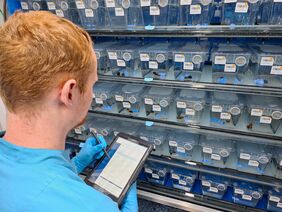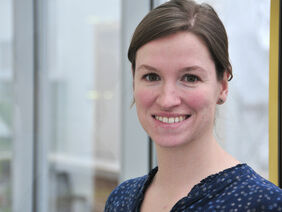Jena. The welfare of fish - that is what drives Dr. Beate Hoppe and her team every day. The animal caretakers, scientists and veterinarians at the Leibniz Institute on Ageing Research (FLI) in Jena have spent six years meticulously collecting and evaluating data and have now published their findings in the Journal of the American Association for Laboratory Animal Science (JAALAS). What has long been standard practice for example in mouse farming is now also finding its way into fish farming worldwide: a system for assessing fish health and a program for routinely monitoring animal health – especially when raised for research reasons.
Monitoring fish health is particularly relevant for research in biology of aging, because health is what aging is all about. The FLI has been maintaining killifish colonies for more than 15 years - with this pronounced expertise in fish, it was therefore a great need for the Jena scientists to make a fundamental contribution to how the health status of the animals can be reliably assessed at both individual and population level. For six years, the fish husbandry team inspected several thousand fish on a daily basis, observed their behavior and recorded the results in a database. Depending on the age of the fish, refusal to eat, restricted mobility or skin changes, for example, can be important indicators of illness. This was supplemented by the findings of external, quarterly health monitoring. Based on this large amount of data, the FLI experts were able to develop the assessment system that has now been published.
"This is extremely helpful for scientists," explains Dr. Hoppe. "In case of doubt, a glance at the score of an individual fish can now provide information on whether it is suitable for research purposes or not." The biologist also sees great added value for fish farms, for example in zoos and aquariums: "Responsibility for animal health ultimately affects not only research, but far more areas," says Dr. Hoppe. It is hoped that the Jena development will be accepted and widely used.
The Jena team's article will appear in the print edition of JAALAS at the end of this month. The evaluation templates can also be requested directly from Dr. Beate Hoppe. From summer on, it will be available worldwide via the JAALAS website and thus freely accessible.










